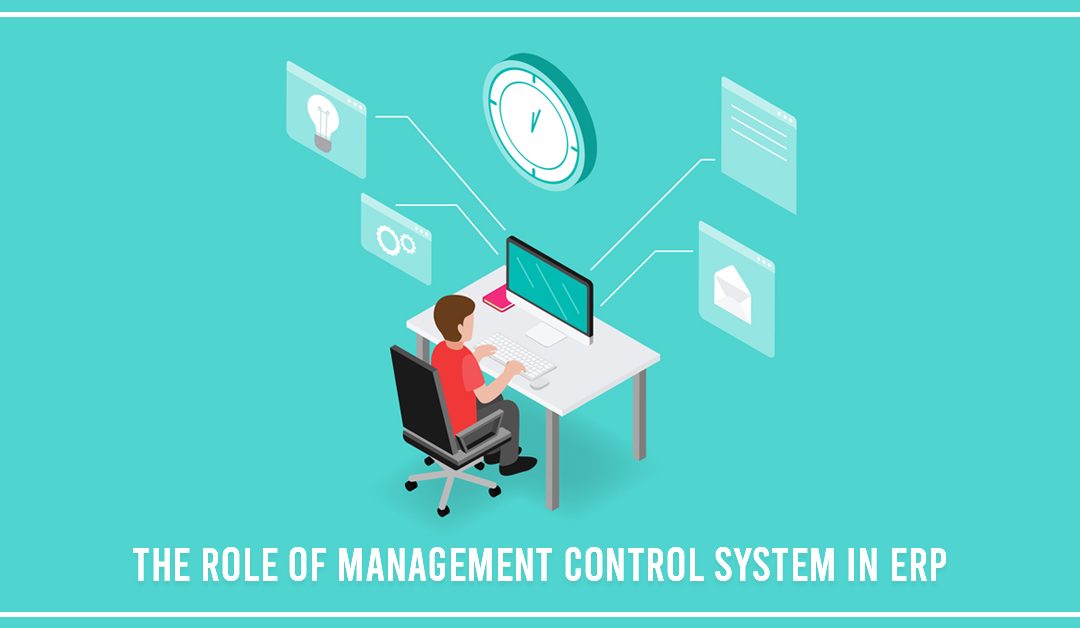To run a successful enterprise, it is important to amalgamate and manage intelligence, control and process. This not only creates a smooth business process but also trigger proper business growth. Hence, it is important to create a closed-loop of management control in a company.
The need of smooth management control led to the development of enterprise resource planning (ERP), which enabled the managers to compare and analyses real-time data and further take appropriate business decisions.
Management Control Systems and its Functions
MCS is formal and informal framework that helps the director of an organization to create strategies and compare them with actual outcomes. It is like a measurement tool that allows understanding whether your organization is functioning effectively or not.
Typical functions of MCS:
-
It determines whether the operations of the organization is carried out as per strategy and determine its progress.
-
The objective of MCS is to detect possible threats and risk in the business process and eliminate them on time.
-
It enables the management team to identify the changes in the market and take proper actions to comply with the shifts.
-
Analyzing complex sales figures and building a strategy to maintain and elevate it.
Enterprise Resource Planning and its Functions
ERP is a process used by enterprises to and integrates and manage processes of their business. With technological advancements, the recent ERP systems are cloud-based applications that allow remote access and administration.
Typical functions of ERP:
-
It helps handle the tasks related to human resources like timesheets, payrolls, leaves, etc.
-
Most of the ERPs are combined with CRM to maintain better relationships with the customers.
-
It increases Business Intelligence so that the leaders can make well-informed decisions based on real-time data.
-
It makes the supply chain more efficient by tracking and scheduling deliveries.
-
ERP makes tracking inventory really easy and transparent.
-
It enables lucid financial management by maintaining digital account books and invoices.
Implementation of MCS in ERP
The MCS is considered as a traditional feedback system, which helps to monitor the outcomes. Using this principle in ERP systems has expanded its functions to supporting change and determining opportunities. It launches mechanistic control over tracking and reviewing various processes. MCS provides motivation and direction to realize business goals and hence, this concept helped in making efficient ERP systems with massive changes in the process making it interactive and diagnostic.
MCS based ERP helps to foster flexibility and strategic changes throughout the organization.
The functions of ERP systems fit into the overall concept of MCS, which leads the organization towards the effective use of resources while controlling finances efficiently. Along with managing and controlling numbers, MCS also ensures to motivate the employees by promoting goal congruence. When employees provide greater productivity, the organization needs a lucid platform to control and manage it. This is when ERP comes handy for the ever-growing enterprises. Therefore, the convergence of MCS and ERP is obvious to provide better growth opportunities and efficient processes. Moreover, it reduces the burden of constant manual control over remote tasks.
Ultimate Tool – PC Soft’s Management Application
PC Soft’s ERP systems are the best medium to handle businesses. Many businesses have greatly profited using their management application and made their customer bonds ever stronger.
Salient Features of Management Application
-
Provide accurate results
-
Enhanced Data Security
-
Equipped with MIS management via Business Automation that promotes personnel and client satisfaction.
-
The application is very user-friendly and flexible
-
Analyze and generate measurable differences in your performance.
-
Harnesses the power of ERP software for maximum profit.
Key Elements of MCS Based ERPs
-
Makes the physical processes smoother and well-organized.
-
Manipulating physical process using the tools and sensors powered in the ERP
-
Complying control systems to monitor, supervise, and administer the processes. These systems DSC, HMI, SCADA.
-
Operational systems that help production workflow, which includes Batch management, execution, plant performance.
-
Provides a systematic business logistics that will help you create basic production schedules, material use, shipping and inventory management.
Conclusion
With the increasing global competition, enterprises are aiming numerous markets under a single organization, so it is important to carry out the management lucidly. PC Soft’s ERPs come with unique and innovative solution that enables proper control and management over your organization.



